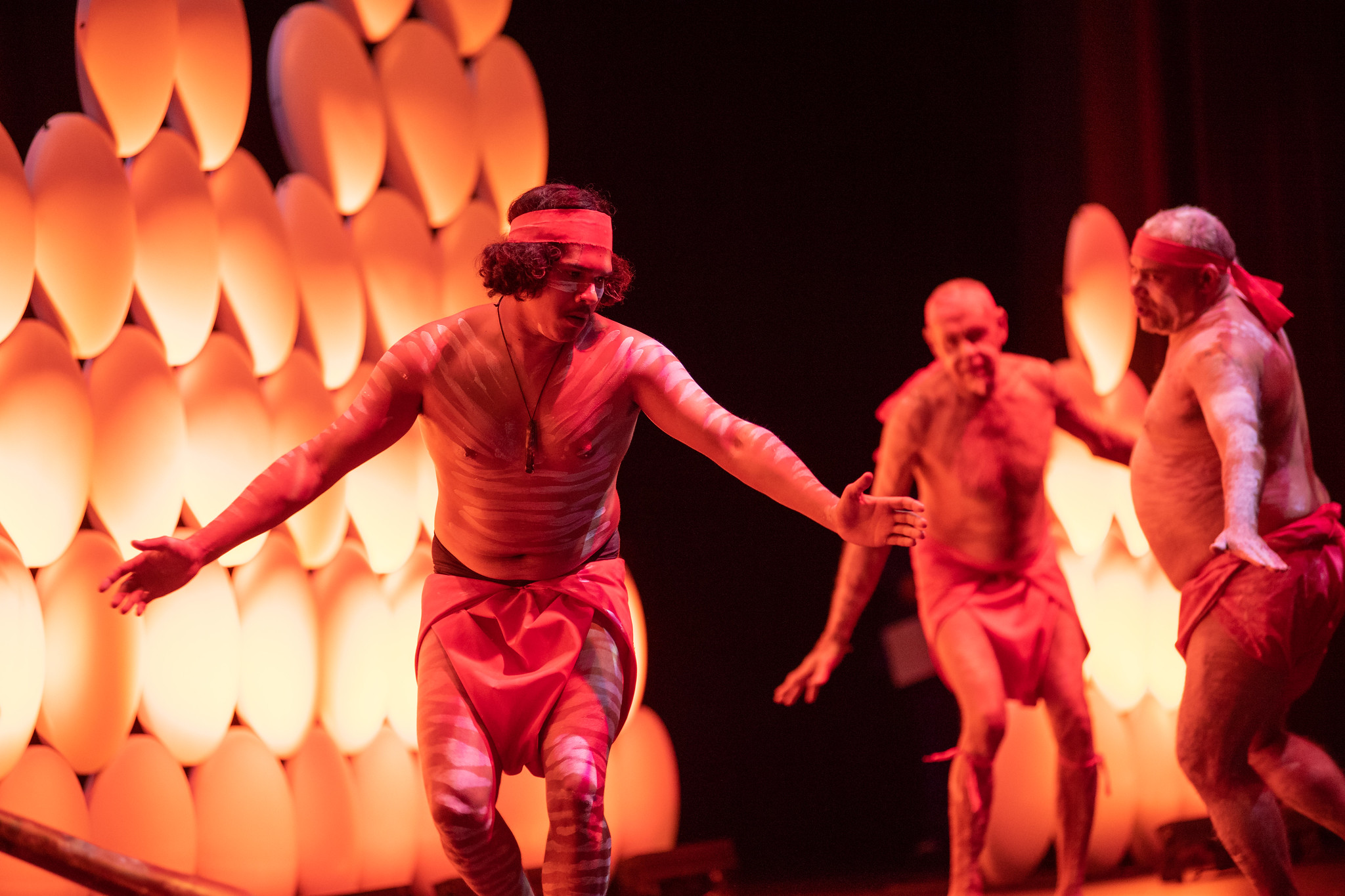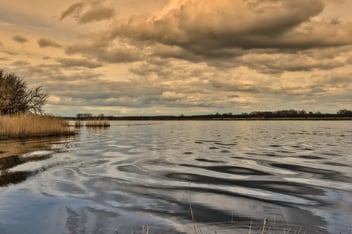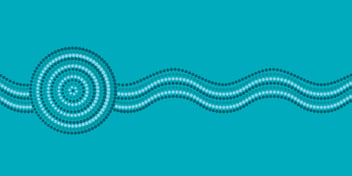Working together to heal Country

Working with First Nations communities to heal Country is a task facing all water utilities across Australia and, while the journey has begun for many, one Victorian partnership showcases what can be achieved when minds meet on water.
Late last year, the Water Services Association of Australia and the Energy Charter facilitated another webinar on First Nations engagement in energy and water, this time delving into how one Aboriginal corporation and water utility have built a strong partnership for long-term change.
Co-hosted by TasNetworks Aboriginal Community Engagement Advisor Graeme Gardner and Yarra Valley Water Aboriginal Partnerships Manager Nina Braid, participants heard from Dja Dja Wurrung Clans Aboriginal Corporation Group CEO Rodney Carter and Coliban Water Managing Director Damian Wells.
The Dja Dja Wurrung Clans Aboriginal Corporation (DJAARA) has evolved into a sophisticated corporate entity over the years, Carter said, placing it in an excellent position to partner successfully to achieve better outcomes for Country and community.
“Simply put, we are framed around a constitution that's about trying to make our lives and our children's lives better as we go forward. We are bringing ancestral knowledge forward to be practically applied to the challenges we all face,” he said.
“We’ve been successful in unpacking our rights to those that have all the forms of authority within the legal and regulatory context. We bring a really creative contribution to other entities and corporate organisations.
“We’re more relevant, more useful, more participatory than we've ever been before, and that’s a result of the honourable and strategic way we have approached partnerships. We've got a really good roadmap to work on greater achievements in partnerships.”
As one of the world’s longest living cultures, the Dja Dja Wurrung have a connection with land and water that is globally significant, a fact that showcases how important it is for Coliban Water to partner with them on their goals, Coliban Water Managing Director Damian Wells said.
“In negotiating a Treaty with First Peoples, the Victorian Government acknowledges that, prior to the formation of the state of Victoria, First Peoples’ communities were here practicing their own lore and cultural authority,” he said.
“We often forget this most basic first principle – there was a pre-existing community here, and others have come in and imposed a new way of law.
“When we start talking about the role of a water corporation in terms of supporting Aboriginal goals, it's actually quite clear that we should be taking a very proactive approach.”
Leaning into challenge
Last year, Dja Dja Wurrung Clans Aboriginal Corporation released the Djaara Gatjin (working together to heal water) Strategy, providing a pathway for water agencies to improve water management and heal Country.
“The aim of our water strategy is to heal water, to give spirit to water. The strategy now gives a sensible structure to our hearts and minds as Djaara people and where we want to be,” Carter said.
“The importance we place on water is something that we as humans need as a form of sustenance and survival, but it's greater than that. We take the holistic view that we need to ensure our Country is a safe and a survivable place for all plants and animals.
“But it can be challenging for people to think of water as a person, as an identity with a spirit or a soul – it can be hard for people to understand the emotion we are trying to bring into how we strategically frame the treatment of water.
“The regulatory area of water management is one of the most difficult and technically challenging areas of work. What we do with this strategy is share our emotion, the spirit of us as people, while unpacking some of the complexities across the water sector.”
From the utility perspective, the difficulty of working with ancestral knowledge in western frameworks is not a challenge to shy from, Wells said – it’s actually a sign that progress is being made.
“A couple of years ago, I listened to a presentation from Rodney and one of his colleagues, Rueben Berg. It was about the need to embrace being challenged,” he said.
“We need to lean into the institutional discomfort that occurs when we are challenged in order to make change happen. We need to be aware that resistance is an indication that we're probably in the right place.
“Resistance should not be a signal to retreat and to give up. It should actually be a signal that we're pushing the envelope, which can be uncomfortable at times. It's a constant evolution as we bring everyone along on the journey of deeper understanding.”
Working with patience
Sharing his advice on how water businesses can best engage with Aboriginal communities and thinkers, Carter said it’s important to remember that partnerships and relationships are a journey, not a destination.
“The ways of being expressed in our Ancestral Knowledge aren't easily applied, but I would suggest to others that there are opportunities in doing this. We won't all immediately have the solutions, but this is a journey,” he said.
“And this journey is going to take us centuries to complete. It’s easy to destroy something. It is so much harder to create, nurture and foster. So we're here for the long game.”
Carter said DJAARA is focused on working with businesses like Coliban Water on water security, restoring upper catchment functions and restoring landscape: “the hands that collect the water from Sky Country”.
“In our strategy, we talk about turning the upside-down climate the right way. Now, there's no immediate and simple answer to what we do in the first instance, but if we take the journey approach and work together and collaborate, we can find the way together,” he said.
“Patience is an amazing thing. We all move at different speeds, but we need to ensure we are all moving along together. There are still Aboriginal groups across the continent that don't have representative organisations. And so we must be patient and aware.”
Being a strong ally
Wells said Coliban Water is committed to partnering with DJAARA to ensure long-term sustainable outcomes for people and communities.
“We’re guided by our Reconciliation Action Plan 2023-25, which outlines the steps we’re taking to reach our goal of reconciliation. It’s about strengthening our relationships, communities and business, and informing our plans for the future,” he said.
In terms of what water organisations can do to be good allies, Wells said prioritising education and understanding is a key step, and absolutely crucial to ensuring genuine partnerships.
“For us to be strong allies, we need to make sure we educate ourselves. With the help of DJAARA, the Coliban Water board has completed cultural competency courses that look at the impacts of colonisation on Aboriginal people across Australia,” he said.
“We've also done a cultural immersion on Country for our directors, as well as our senior executives and staff.
“If you turn up to work or the boardroom with an idea about how to assist an Aboriginal community to achieve its aims, and you haven’t laid the foundations with proper learning, you’re going to have a few false starts.
“I certainly don't profess to understand all the ways that Aboriginal people have experienced and continue to feel the impacts of colonisation. However, through seeking to understand, our decisions get better.”



